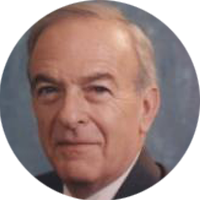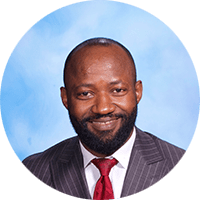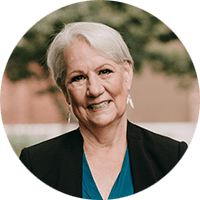Energy & Climate Experts
Ideas into Action
Michael Hamersky
Executive Director
Michael Hamersky is the Executive Director of the Pace Energy and Climate Center and an Adjunct Professor at the Elisabeth Haub School of Law at Pace University. Over nearly four decades, the Pace Energy and Climate Center has established itself as a national leader working at the intersection of energy and the environment. At the Center, Michael focuses on policy solutions related to climate change mitigation, clean energy deployment, sustainable development, and renewable energy incentive structures. Importantly, Michael prioritizes the Center’s work on the impact that the clean energy transition will have on vulnerable communities.
Prior to this role, Michael served as the Climate Change and Land Use Policy Fellow at Pace Haub Law where he focused on the clean energy transition and the various barriers to, and incentives for, renewable energy deployment. Specifically, Michael has advised the United States Department of Energy, as well as end-users and municipalities, on how to best implement on-site distributed energy resources in the New York/New Jersey region considering the economics in light of regional energy markets. Michael has also developed recommendations to the New York State Research and Development Authority (“NYSERDA”) to update New York’s battery storage, and wind energy, systems model laws and has prepared resources related to large renewable energy project siting and permitting process, which is used by NYSERDA to educate municipalities throughout the state.
Michael has a passion for defending the ocean and has produced significant scholarship related to protecting ocean ecosystems from the environmental harms related to deep seabed mining. In furtherance of that passion, Michael served as an adviser to the Alliance of Small Island States during its negotiations related to the Agreement under the United Nations Convention on the Law of the Sea on the Conservation and Sustainable Use of Marine Biological Diversity of Areas Beyond National Jurisdiction.
Michael is actively working with Native American tribes to ensure that tribal communities have access to reliable, affordable, and sustainable energy. As the result of his work with tribal NGOs, he was invited to speak on proposed revisions to laws and federal regulations towards a more sustainable energy future free of fossil fuels by the Navajo Nation Department of Fish and Wildlife in August 2024. Michael will be presenting on threats to Indigenous conservation efforts in Belem, Brazil at COP30.
Previously, Michael was a corporate restructuring litigator for over fifteen years in New York City and an Adjunct Professor of trial advocacy at the Fordham University School of Law.

Emma Lagle
Energy Policy Advisor & Regional Affairs Manager
Emma Lagle serves as the Center’s Energy Policy Advisor & Regional Affairs Manager and works with Pace Energy and Climate Center allies on promoting clean energy with our advocacy networks. Emma previously served as the Center’s 2020-2021 Energy and Climate Fellow.
Emma began working in environmental law and policy organizing student lobbying efforts in favor of a state-wide natural gas fracking moratorium in 2014 with NYPIRG. Her interests in community-based project development led her to roles as project leader for downstate-New York non-profits organizing community-wide sustainability initiatives that required engagement of local officials, private businesses, and community members. Emma’s efforts culminated in her membership on an inter-disciplinary team that developed an urban-renewal plan for the West River neighborhood of New Haven and West Haven, Connecticut, which analyzed and presented the municipal stakeholders with best approaches to address the area’s economic, recreational, transportation, and coastal resiliency concerns.
Emma completed her JD with an Advanced Certificate in Environmental Law at Pace University’s Elisabeth Haub School of Law and a Master’s in Environmental Management at the Yale School of Forestry & Environmental Studies. While completing these degrees, she interned with the Land Use Law Center, where she worked with municipalities to compose the form-based codes and helped build a national database on land use regulations for solar energy, the Charlottesville office of the Southern Environmental Law Center, and the Pace Environmental Litigation Clinic, where Emma participated in successful legislative efforts against natural-gas pipeline development. In 2021, Emma received a Master of Laws in Energy and Climate Law from Pace while serving as the Center’s Fellow.

Richard L. Ottinger
Dean Emeritus and Founder
Richard L. Ottinger is Dean Emeritus of The Elisabeth Haub School of Law of Pace University He is Co-Director, with Haub Distinguished Chair of International Law Smita Narula, of the Haub/Pace Global Center for Environmental Legal Studies. He is Chair Emeritus and co-founder of the Environmental and Energy Study Institute, Washington, D.C. He served in the U.S. House of Representatives from 1965 to 1971 and 1975 to 1985, chairing the House Energy Conservation & Power Subcommittee. Ottinger then taught environmental law at Haub/Pace Law School from 1985 to 1994, after which he served as Dean until July 1, 1999. He founded the Pace Energy and Climate Center and co-edited and co-authored its seminal U.S. work on environmental externalities: The Environmental Costs of Electricity (Oceana Press, 1990). He has authored and edited some 100 books and articles on sustainable energy, including The Law of Energy for Sustainable Development and Compendium of Sustainable Energy Laws (Cambridge University Press 2005); UNEP Guide to Energy Efficiency and Renewable Energy Laws (UNEP 2016).
In 2005 he received the American Bar Association Lifetime Achievement Award, and in 2017 the national Award for Distinguished Achievement in Environmental Law and Policy from the American Bar Association Section on Environment, Energy and Resources.
Ottinger specializes in educating students by involving them in action on key national and international environmental and energy issues. Thus, he involved students in a joint study with Shanghai Jaio Tong University on how U.S. environmental laws are implemented, the key conclusions of which were incorporated in the 2015 China environmental law revisions; and in a study for the National University of Singapore and APCEL on laws adopted worldwide for climate change adaptation.
Fellows

Akinola Afolarin
Institute for Energy Democracy Fellow
Akinola is a sustainability attorney with over a decade of practice experience. He provides a unique combination of expertise in different aspects of environmental law, energy law, climate change law, and corporate governance law, as well as up-to-date mastery of different environmental, social and governance (ESG) frameworks, regulations, rules, and disclosure practices which he employs in helping governmental bodies and corporations to develop, manage, and achieve their sustainability goals. With his unique skills, Akinola is deeply involved in various energy and climate change projects of the Center, providing legal and regulatory perspectives.
Prior to joining the Center, Akinola practiced law in top-tier law firms in Nigeria where he represented diverse corporations and governments on transactions bothering on environmental, energy, oil and gas, climate change, and sustainability issues. In this capacity, he was part of the team that represented South Atlantic Petroleum Ltd and other multinationals on oil prospecting license and mining issues, advised on governments on the United Nations Framework Convention on Climate Change (UNFCCC) and the Paris Agreement as well as developed sustainability strategies for multiple financial and investment corporations pursuant to the Nigerian Sustainable Banking Principles (NSBP) of 2012. As a sustainability expert, he worked with ServiceNow as an ESG Projects Specialist. He has also served as Vice Chair of the Section on Environment, Energy, and Resources Law (SEER), IERL Committee of the American Bar Association.
As an expert, his work cuts across different areas of sustainability and the interconnection of renewable energy, climate change, and ESG, from the legal, regulatory, and policy dimensions. He has also researched and published works on climate change, hydrogen, ESG, and the danger of plastics to the environment and the marine ecosystem accessible at SSRN. His in-depth knowledge, research, and experience in these important areas of practice set him apart to provide best-in-class sustainability roadmaps and solutions, from both the complex legal angle and the ever-evolving trends in ESG frameworks toward the attainment of net-zero goals.
Akinola holds a Bachelor of Laws (LL.B) degree from Olabisi Onabanjo University, Ogun State, Nigeria, and a Barrister at Law (BL) from the Nigerian Law School. He also obtained a Masters’s degree in Environmental Law with a specialization in Energy and Climate Change Law from the Elisabeth Haub School of Law at Pace University, New York.

Jim Lazar
Institute for Energy Democracy Fellow
Jim Lazar is an economist with more than 40 years of experience in utility rate making and resource planning. In his early consulting career, Jim testified in more than 100 regulatory dockets before local, state, federal, and Canadian provincial utility regulators. Then, for more than twenty years, he served as a Senior Advisor with the Regulatory Assistance Project. His RAP work involved training and technical assistance for utility regulators in the United States, Asia, Africa, and Europe, and authoring more than a dozen handbooks and guides, including Electricity Regulation in the US: A Guide, Smart Rate Design for a Smart Future, and Electric Cost Allocation for a New Era. Those publications are all available at www.raponline.org at no charge. He is a former member of the US DOE Electricity Advisory Committee. Jim is a former Commissioner of the Thurston County Public Utility District, an avid cyclist, and loves the mountains and rivers of the Pacific Northwest. He lives in Olympia, Washington.

Janine Migden-Ostrander
Institute for Energy Democracy Fellow
Janine Migden-Ostrander has over four decades of experience in the energy field. Most recently, Janine was a Principal at the Regulatory Assistance Project (RAP) where she focused on regulatory issues and worked on power sector transformation. Some of her major projects included: advising and assisting the Puerto Rico Energy Bureau, from its creation in 2015 until she left RAP in 2021 on a variety of cutting-edge issues including microgrid regulations and performance incentive mechanism; assisting Arkansas develop comprehensive energy efficiency programs as part of the Clean Energy Ministerial; the Finding Common Ground Project which brought leading environmental and regulatory stakeholders together to discuss and develop pathways on regulatory issues; and many others.
From 2004 – 2011, Janine served as Ohio Consumers’ Counsel and represented Ohio’s 4.4 million residential households on electric, gas, telephone and water issues. In this role, Janine focused on rate affordability for all customers, the promotion of distributed energy resource options for customers, low-income customer protections, broadband for rural and disenfranchised communities; and administrative due process for consumers in the regulatory process. In her capacity as the Consumers’ Counsel, Janine oversaw the policy and advocacy positions in the many hundreds of cases in which the Consumers’ Counsel participated.
Janine worked at Enron as a Senior Director of Government Affairs where she was responsible for leading the Corporation’s efforts to deregulate the electric and gas industry in the Midwest. This included working on legislation and regulations to implement deregulation in addition to working with the Enron business units to offer deregulated services.
During the course of her career, Janine has litigated cases involving all aspects of utility regulation for consumer and environmental groups, from rate cases to integrated resource planning.
Janine received her J.D., from Capital University Law School,in Columbus, OH, a B.A from the State University of New York, Plattsburg, New York, December and a Certificat de la Langue et Civilisation Francais from La Sorbonne, Paris.

Ryan McEnany
Institute for Energy Democracy Fellow
Ryan McEnany is a dedicated energy professional and Director of Energy and Resiliency for Pace University where he manages the implementation of energy efficiency measures, renewable energy projects, and sustainability initiatives across the university’s campuses. Through Ryan’s leadership, Pace University has maintained an 18% reduction in energy costs and a roughly 25% reduction of GHG emissions. Ryan holds a Master’s Degree from Harvard University in Sustainability and Environmental Management and is a LEED Accredited Professional with a specialization in Building Design and Construction. With over 15 years of experience in the energy industry, Ryan has developed a deep expertise in energy management, sustainability, decarbonization and climate action planning

Daniel Pellegrini
Institute for Energy Democracy Fellow
At CCEnergy, Dan has been a hands-on leader who is engaged in CCEnergy member installations, equipment purchasing and customer service. Dan also provides leadership in building community relationships for the benefit of CCEnergy’s members and has been active in advocating for solar-friendly energy policies at the local, state, and federal level. Dan was one of the first to develop a set of spreadsheet tools to automate many aspects of the evaluation, design, sales, and project management for solar energy systems.
Dan has built a reputation in solar activism at the local, state, and national level. He regularly travels to Sacramento and Washington, DC to lobby on behalf of bills to support the solar industry. He has worked with other solar advocacy groups to build grassroots support for specific legislation and testify at regulatory hearings affecting solar energy. These activities have earned the respect of many within the solar industry and enhanced Dan’s reputation as one of the true “good guys” working hard to make sure everyone’s solar rights are protected.
Dan has extensive experience in project management and in building effective information systems. Dan has started two successful businesses in the software development field: DataWeb Systems, a consulting firm for building database-driven web applications for medium-sized business customers, and CollabNet, a company building Web-based collaborative software development solutions for large corporate customers.
Education: B.A. in Economics, Harvard, 1982; MBA in Finance and MIS, State University of New York (SUNY) Binghamton, 1986

Joe Siegel
Institute for Energy Democracy Fellow
Joseph Siegel is a mediator, facilitator, and climate change lawyer, and has been an adjunct professor at the Elisabeth Haub School of Law at Pace University since 2001 teaching climate change and air pollution courses. He served as Interim Executive Director of the Pace Energy and Climate Center following a 38 year career with the U.S. Environmental Protection Agency Region 2 office in New York where he was a Senior Attorney, co-chaired the Region 2 Climate Change Workgroup and the Office of Regional Counsel’s Climate Change Workgroup, managed the Region 2 Environmental Collaboration and Conflict Resolution program, and served on the Steering Committee of the Mid-Atlantic Federal Climate Partners. Much of Joe’s legal work at EPA involved regulation of the energy sector under the Federal Clean Air Act. He has also been a leader on national policy related to climate change, air pollution and dispute resolution.
As a mediator and facilitator for over 20 years, Joe often serves as an impartial third-party on matters involving climate change adaptation and greenhouse gas mitigation as well as other environmental issues. In this work, he seeks to build bridges among diverse stakeholders and help them arrive at collaborative solutions. He also currently teaches Environmental Dispute Resolution at Hofstra Law School where he has been a Special Professor of Law since 2014 and he became a Visiting Scholar at the Environmental Law Institute in 2025 working on environmental peacebuilding.
Joe’s international work includes serving as Education Chair for the Climate Change Project of Mediators Beyond Borders International since 2018 and participation in various international collaboration and conflict resolution initiatives on climate change such as Adaptation Without Borders and Better Climate Governance. He teaches and lectures on mediation and conflict resolution at both United Nations climate change summits and domestic conferences on climate change and dispute resolution. He was also a member of the Advisory Group to the United Nations Environment Programme and Permanent Court of Arbitration on Environmental Dispute Resolution and Dispute Avoidance.
Previously, Joe taught environmental law and environmental justice for 11 years at City University of New York Law School at Queens College. He served as Chair of the American Bar Association (ABA) Committee on Climate Change, Sustainable Development and Ecosystems of the Section of Environment, Energy, and Resources (SEER) and Chair of the ABA SEER Alternative Dispute Resolution Committee. Joe also served as Vice-Chair of the ABA Renewable Energy Resources Committee and editor of the Energy Committees Newsletter. He has been a frequent lecturer and author on climate change, conflict resolution and collaboration.

Scott Sklar
Institute for Energy Democracy Fellow
Scott Sklar is President of The Stella Group since 2000, a global clean technology owner’s representation firm facilitating optimization of clean distributed energy utilization and technology integration primarily for commercial, industrial, institutional, infrastructure and local government.
Scott serves as an Adjunct Professor at The George Washington University (GWU), teaching three unique interdisciplinary courses on sustainable energy, and is the Sustainable Energy Director of GWU’s Environment & Energy Management Institute (EEMI). Scott is also Adjunct Faculty for George Mason University Schar Graduate School, teaching a summer course “Renewable Energy & Critical Infrastructure for low-Income & Underserved Communities” beginning summer 2023.
From 1985 to 2000, Scott served as Executive Director of both the Solar Energy Industries Association (SEIA) and the National BioEnergy Industries Association. Previously, he was Political Director of The Solar Lobby, a clean advocacy organization founded by the big-nine major US national environmental organizations. Prior, he was Washington Director and Acting Research Director for three years of the National Center for Appropriate Technology (NCAT).
Scott began his energy career as an aide from 1970 to 1980 to Senator Jacob K. Javits (NY) where he focused on energy and military matters. During his Senate tenure, he cofounded the Congressional Solar Caucus that lead much of the innovative legislation promoting renewable energy in the 1970’s.
Scott serves on the Board of Directors of the Business Council for Sustainable Energy and the Small-Scale Sustainable Infrastructure Development Fund (S3DIF).
Scott lives in a self-powered solar home in Arlington, Virginia with solar water heating, geothermal heating and cooling, and a photovoltaics/battery system, which also fully charges his 2022 EV. The Stella Group has a zero energy 2-story office building in Virginia powered by PV roof shingles, a small wind turbine, and a hydrogen fuel cell tied to a battery bank. Scott has co-authored two books, written peer-reviewed papers, and publishes several articles yearly on renewable energy and resiliency.

Suzanne Watson
Institute for Energy Democracy Fellow
Prior to joining ACEEE in 2008, she served many different companies and associations holding various titles including Director for the Office of Innovation at the Maine Department of Environmental Protection, Energy and Climate Policy Director for the Northeast States for Coordinated Air Use Management (NESCAUM), Senior Policy Advisor for the Northeast-Midwest House and Senate Coalitions on Capitol Hill, and as Founder and Director of the Maine Environment & Energy Center (E2 Center), which is now E2Tech.
Suzanne continues to work in New England, and nationally, on multiple clean energy efforts as Principal for Watson Strategy Group.
Suzanne received her BA in political theory from Bowdoin College in Brunswick, Maine. She was awarded a juris doctor and master of intellectual property law from the University of New Hampshire School of Law (formally Franklin Pierce Law Center) in Concord, New Hampshire.
Our Staff

Mary Cataneo
Accountant